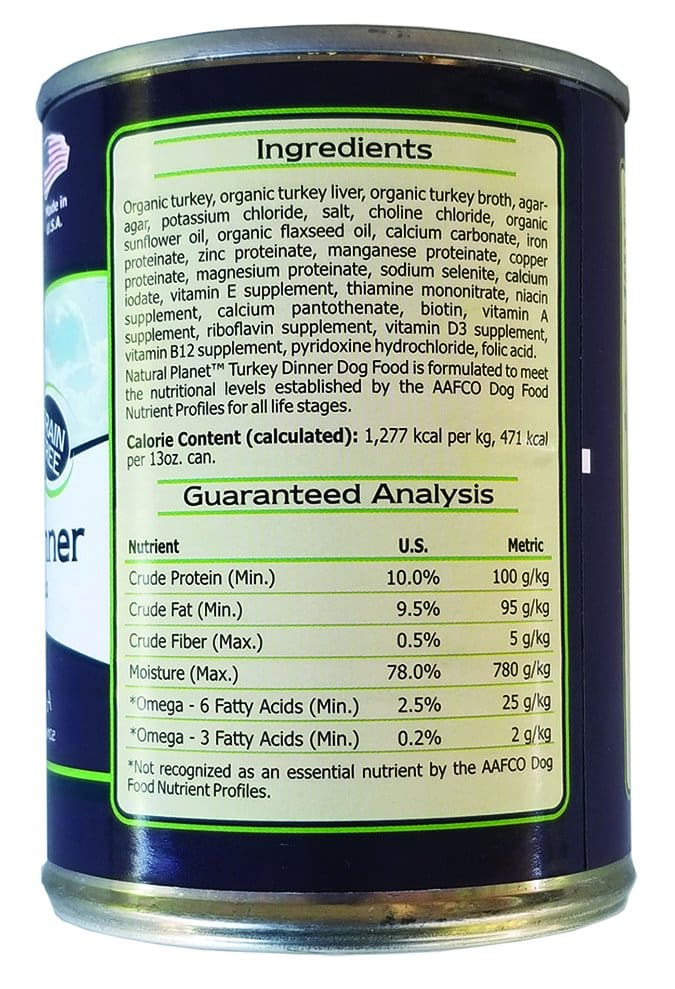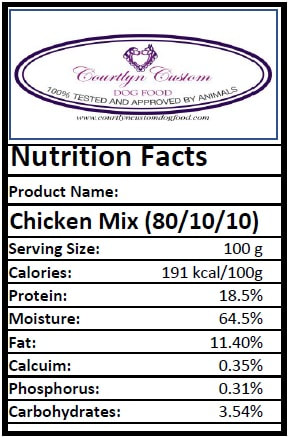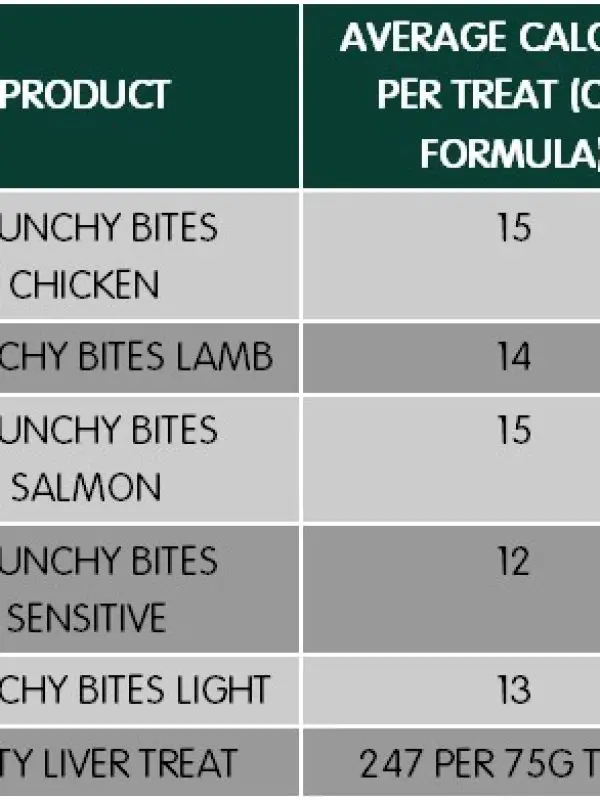100g of dog food contains essential nutrients like proteins, fats, and carbohydrates necessary for a balanced diet. When it comes to ensuring your dog's well-being, understanding the nutritional facts of their food is crucial.
100g of dog food provides a comprehensive mix of proteins, fats, and carbohydrates. These nutrients are essential for your pet's overall health and vitality. By delving into the nutritional breakdown of dog food, you can make informed decisions about your furry friend's diet and ensure they receive the necessary nourishment.
Let's explore the significance of these nutrients and how they contribute to your dog's overall well-being.
The Basics Of Dog Food Nutrition
Discover the essential facts about dog food nutrition with a focus on the nutritional content per 100g. Learn about the protein, fat, and carbohydrate ratios to ensure a balanced diet for your furry friend.
| Dog food nutrition facts are essential for understanding your pet's diet. In a 100g serving, key nutrients such as proteins, fats, and carbohydrates play a crucial role. Knowing the caloric content breakdown helps in maintaining your dog's health and energy levels. It is important to choose dog food that provides a balanced mix of these nutrients to support your furry friend's well-being. By paying attention to the nutrition facts, you can ensure that your dog receives the necessary nutrients for a healthy and active life. |
Protein Power
Dog food nutrition facts are crucial for understanding the nutritional content of your pet's diet. Protein is a key component of dog food, providing essential nutrients for muscle growth and overall health. The average protein content per 100g varies among different dog food brands, so it's important to carefully read the labels to ensure your furry friend is getting the right amount of protein to thrive.
Fat Facts
Discover the essential dog food nutrition facts for 100g servings. Learn about the protein, fat, and calorie content to ensure your furry friend gets a balanced diet.
| Typical Fat Composition |
|---|
| A balanced diet for dogs consists of a mix of proteins, fats, and carbohydrates – just like for humans. Fats play important roles in canine diets. They provide a concentrated source of energy, help with the absorption of fat-soluble vitamins, and contribute to the taste and texture of food. Fats also support healthy skin and coat, aid in hormone production, and provide insulation and protection for organs. When it comes to dog food nutrition, it's important to consider the fat content. Different dog foods have varying fat compositions, and it's crucial to choose a food that meets your dog's specific needs. Always consult with your veterinarian to determine the appropriate fat levels for your dog's age, breed, and activity level. |
Carbohydrate Clarity
Carbohydrate Clarity in dog food nutrition facts 100g is essential for understanding the balance of macronutrients in your pet's diet. It provides insight into the carbohydrate content, aiding in making informed decisions for your dog's nutritional needs.
| Carbohydrate Clarity |
| Carbohydrates play an important role in dog food nutrition. They provide energy and aid in digestion. However, the carbohydrate content can vary among different dog food brands. It is essential to understand the carbohydrate content of the dog food you choose for your furry friend. Popular brands often provide nutritional facts on their packaging or websites, allowing you to compare and make an informed decision. Some brands may offer low-carb options for dogs with specific dietary needs. By considering the carbohydrate content, you can ensure your dog's diet aligns with their nutritional requirements. It's always a good idea to consult with a veterinarian to determine the optimal carbohydrate intake for your dog based on their age, breed, and overall health. |
Vitamin And Mineral Magic
Dog food nutrition is essential for your furry friend's health and well-being. Essential vitamins for dogs include vitamin A for vision and immune function, vitamin D for bone health, and vitamin E for cell function. Meanwhile, minerals like calcium are crucial for bone strength, and iron supports healthy blood cells. Providing a balanced diet with the right vitamins and minerals is key to your dog's nutrition.

Credit: www.mcgill.ca
Analyzing The Guaranteed Analysis
Unlock the nutritional value by analyzing the Guaranteed Analysis of dog food per 100g. Ensure a balanced diet with essential proteins, fats, and carbohydrates for your furry friend's optimal health.
| When analyzing dog food nutrition facts per 100g, focus on guaranteed analysis for a thorough evaluation. |
| Decipher the label to understand the protein, fat, fiber, and moisture content. |
| Compare nutrition across different dog food brands to make an informed choice. |
Special Dietary Considerations
Discovering the nutritional facts of dog food per 100g is essential, especially when considering special dietary considerations. Understanding these details can help ensure that your furry friend receives the proper balance of proteins, fats, and carbohydrates for optimal health and well-being.
| Special Dietary Considerations |
|---|
| Food for Active vs. Sedentary Dogs |
| Adjustments for Life Stages |
When it comes to special dietary considerations for dogs, it is important to take into account their activity level and life stage. Active dogs require more calories and protein, while sedentary dogs require fewer calories to maintain a healthy weight. Additionally, puppies and senior dogs have different nutritional needs than adult dogs. It's important to choose a high-quality dog food that provides all the necessary nutrients for your dog's specific needs. You can consult with your veterinarian to determine the best diet for your furry friend.

Credit: www.whole-dog-journal.com
The Controversy Of Grain-free Options
| Dog Food Nutrition Facts 100G |
|---|
|
Dog food nutrition facts can be a controversial topic, particularly when it comes to the use of grain-free options. While these options may offer benefits such as improved digestion and reduced risk of allergies, there are also potential downsides to consider. Pros and ConsGrain-free dog foods can be a good choice for dogs with food sensitivities or allergies, as well as those who need to lose weight. However, some grain-free options may be lower in certain nutrients, such as fiber and carbohydrates, which can impact the nutritional content of the food. Impact on Nutritional ContentWhen choosing a grain-free dog food, it's important to carefully read the label and understand the nutritional breakdown. Look for high protein and crude protein content, as well as guaranteed analysis information. Dry dog food and canned food may have different calorie content, so it's important to calculate the calorie content based on the specific type of food. |
Diy Dog Food
DIY dog food allows you to have complete control over your dog's nutrition. When looking at nutrition facts per 100g of dog food, it's important to consider the protein and calorie content to ensure a balanced diet for your furry friend.
| DIY Dog Food | Homemade Nutrition | Balancing the Diet |
| Making your own dog food ensures high-quality ingredients. | Include protein, vegetables, and grains for a balanced meal. | Consult a vet to tailor the diet to your dog's needs. |

Credit: courtlyncustomdogfood.com
The Future Of Dog Food Nutrition
Dog food nutrition has seen significant innovations, with a focus on predicting future trends. Manufacturers are continuously improving dog cuisine to meet the nutritional needs of our furry friends. From calorie content to protein levels, a balanced diet is essential for a dog's well-being. Understanding the nutritional breakdown of dog food is crucial, and pet owners should be mindful of the calorie content in their pet's diet. With a mix of proteins, fats, and carbohydrates, it's important to choose high-quality dog food that provides the necessary nutrients. Additionally, dog food nutrition facts vary by brand, so it's essential to consider these factors when selecting the right food for your pet.
Frequently Asked Questions
How Much Protein Is In 100g Of Dog Food?
100g of dog food typically contains around 20-30 grams of protein.
How Much Protein Is In 100g Of Dog Meat?
100g of dog meat contains approximately 25-30g of protein.
What Is The Nutritional Breakdown Of Dog Food?
The nutritional breakdown of dog food includes crude protein, fat, fiber, moisture, and other essential nutrients like vitamins and minerals. It varies depending on the brand and type of dog food. It's important to choose a dog food that meets your dog's nutritional needs and consult with a veterinarian for any specific dietary requirements.
How Much Protein Is In 1 Cup Of Dog Food?
One cup of dog food typically contains around 25-30% protein content, depending on the brand and type.
What Are The Key Nutrients In Dog Food?
Dog food contains essential nutrients like protein, fats, vitamins, and minerals for canine health.
Conclusion
Understanding dog food nutrition facts is crucial for ensuring that our furry friends are getting a well-balanced and nutritious diet. From understanding calorie content to protein and fat ratios, it's important to take a closer look at the labels of the dog food we're feeding our pets.
By doing so, we can ensure that we're providing them with the best possible nutrition for a happy and healthy life.











